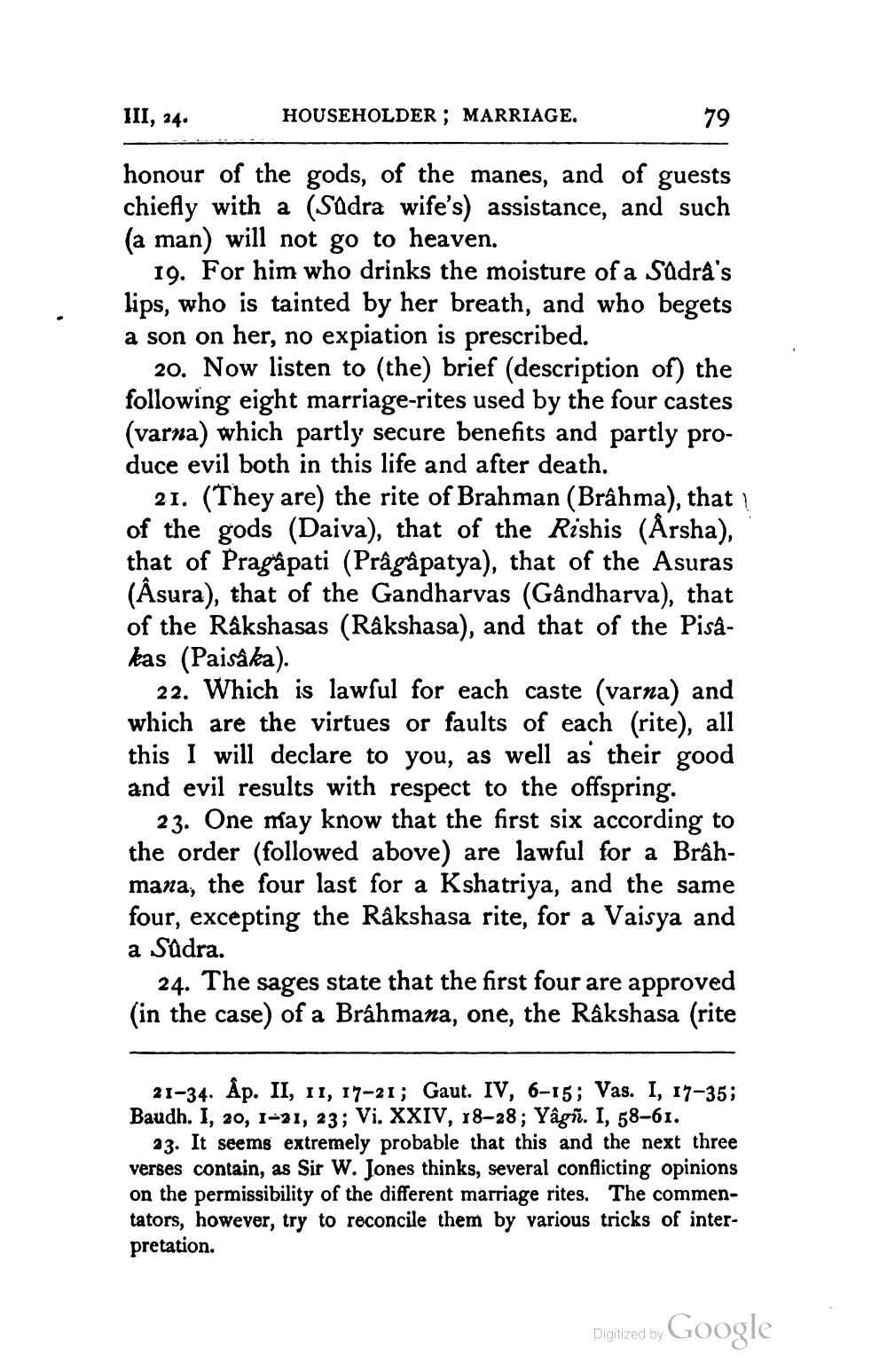________________
III, 24.
honour of the gods, of the manes, and of guests chiefly with a (Sûdra wife's) assistance, and such (a man) will not go to heaven.
HOUSEHOLDER; MARRIAGE.
79
19. For him who drinks the moisture of a Sûdrâ's lips, who is tainted by her breath, and who begets a son on her, no expiation is prescribed.
20. Now listen to (the) brief (description of) the following eight marriage-rites used by the four castes (varna) which partly secure benefits and partly produce evil both in this life and after death.
21. (They are) the rite of Brahman (Brâhma), that \ of the gods (Daiva), that of the Rishis (Årsha), that of Pragâpati (Prâgâpatya), that of the Asuras (Âsura), that of the Gandharvas (Gândharva), that of the Rakshasas (Râkshasa), and that of the Pisâkas (Paisâka).
22. Which is lawful for each caste (varna) and which are the virtues or faults of each (rite), all this I will declare to you, as well as their good and evil results with respect to the offspring.
23. One may know that the first six according to the order (followed above) are lawful for a Brâhmana, the four last for a Kshatriya, and the same four, excepting the Râkshasa rite, for a Vaisya and a Sûdra.
24. The sages state that the first four are approved (in the case) of a Brahmana, one, the Râkshasa (rite
2I-34. Âp. II, II, I7-2I; Gaut. IV, 6–15; Vas. I, I7-35; Baudh. I, 20, 1-21, 23; Vi. XXIV, 18-28; Yâgñ. I, 58-61.
23. It seems extremely probable that this and the next three verses contain, as Sir W. Jones thinks, several conflicting opinions on the permissibility of the different marriage rites. The commentators, however, try to reconcile them by various tricks of interpretation.
Digitized by
Google




